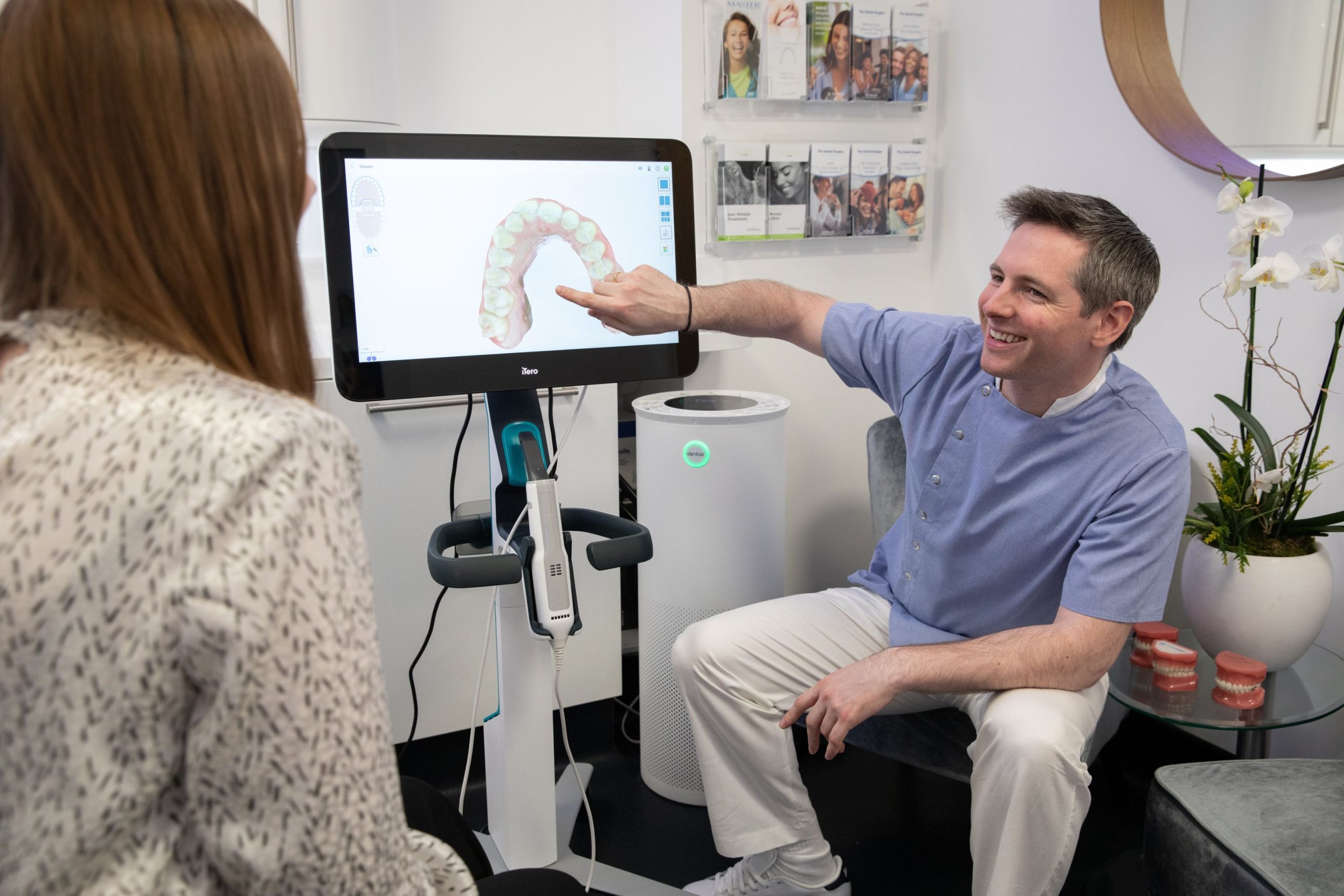- Categorised as:
- Periodontics
- Dental Hygiene
- General Dentistry
Does Diabetes Cause Mouth Problems?
Maintaining good oral health is important for reasons beyond what goes on in the mouth itself.
The reverse can also be true, your oral health may be compromised by your overall health – stress, for example, can lead to a series of oral health complications.
Is this also true of diabetes? Can having diabetes lead to mouth problems? And is it a link that works both ways, oral health problems also increasing the severity of diabetes?
Unfortunately, the answer is yes in both cases.
- Diabetes can lead to mouth and oral health problems.
- Oral health problems are also a risk factor that can make diabetes harder to control.
Clearly, this is a circular scenario where, unchecked, both conditions could continue to make the other worse with ultimately damaging, potentially fatal, consequences given diabetes’ link with heart disease and strokes.
In this post we will look at how the two conditions effect each other, which oral health conditions might be experienced and provide some advice on what to do next.
Why Diabetes Causes Mouth Problems (and vice versa)
Rather than there being a singular reason why diabetes can lead to oral health problems, a few factors exist. It is perhaps easier to think of the link in reverse, to think of the requirements that are necessary for mouth problems to flourish.
High levels of sugar and starch interact with naturally occurring bacteria in the mouth to create plaque, a sticky film that attaches itself to teeth. The acids in this plaque attack the surface of teeth, potentially leading to cavities and gum disease. Given that diabetes leads to periods where the blood sugar level is raised, the supply of sugar and starch to the bacteria in the mouth is increased.
The more plaque created, the more damage done.
Dry Mouth
Oral health problems are also often the result, at least in part, of dry mouth (xerostomia). In many cases, someone with diabetes has a relative lack of saliva and without the mouth moist and teeth bathed in saliva, the risk of a range of dental and oral conditions is increased.
This negative association works the other way too, an oral problem such as periodontitis (serious gum disease), which is three times more likely among those with diabetes, has a high chance of further raising blood sugar levels, making diabetes harder to control.
There exists a wealth of scientific, peer reviewed research that shows the link between diabetes and oral health problems and the link in reverse (links are included at the bottom of this post).
With the relationship established, it is important to know which oral health problems diabetes can lead to.
Oral Health Issues That Can Be Brought on By Diabetes
The build-up of plaque we mentioned in the first section can lead to issues ranging from Gingivitis, which is problematic but relatively easy to treat through to more aggressive gum disease, also known as periodontitis.
Gingivitis is caused when the plaque persists on the tooth surface, over time this irritates the gums and they become swollen and bleed easily. Bad breath is also a common side effect. As unpleasant as gingivitis might be, it is not a condition that does long term damage by itself and is fairly easy to treat – the removal of the tartar by a dental hygienist the only treatment required.
However, gingivitis can become periodontitis, the more serious version of gum disease, a condition that leads to the erosion of tissue and bone and can make teeth become loose and eventually be at risk of falling out.
Serious
Periodontitis is a serious medical condition, one that is linked to heart disease and can also lead to an escalation of diabetes. It is also a condition that requires specialist treatment, using a strong mouthwash isn’t going to solve the problem.
For the person suffering from bleeding gums it can be almost impossible to know whether they have gingivitis or periodontitis, the symptoms appearing similar even if the damage done is very different.
It is important to get the symptoms properly checked out and this advice applies even more strongly to anyone with diabetes given the 300% increased likelihood of contacting periodontitis.
Infection
Diabetes can also lead to thrush, a fungal infection that can result in ulcers (painful white and red patches inside the mouth).
Furthermore, diabetes can lead to dry mouth which then further increases the risk of gum disease, the mouth lacking the saliva that naturally helps to fight bacteria.
In short, there is a strong prevalence of gum disease amongst people who have diabetes. What can be done about it?
How To Reduce The Risk Of Oral Health Problems.
Much of the advice for a person with diabetes is the same as for anyone and it starts with a good oral hygiene routine. Your teeth should be brushed twice a day and electric toothbrushes are recommended – also don’t forget to floss or use an inter dental brush.
The food you eat also has an impact on your dental health – food high in sugar or acid being clearly problematic, we have written a blog post with further information on foods to avoid (here).
Avoid Smoking
Smoking is also to be avoided, the risk of contracting gum disease is many times higher for anyone who smokes, which is also true for mouth cancer. Advice more specifically aimed at those with diabetes would be to always mention the condition when seeing your dentist and hygienist.
Given the heightened risk of contracting gum disease and then the circular impact this will have on the diabetes, it is essential that the health of your gums is monitored and tracked over time to stay on top of any issues at the earliest stage.
Next Steps
The next steps for anyone with diabetes and concern over their oral health are straightforward, work to improve your oral hygiene and make sensible adjustments to your diet (and smokers, do try to quit, or at least cut down). Equally important, arrange a check up with a dentist, ideally a practice that also has a team of hygienists and a periodontist (a dentist who specialises in gum disease) so that there is easy referral if any gum issues are identified.
Do you have a specific question?
Get in touch with us today.



